With over 10,000 orders
With over 10,000 orders

For those eager to explore nature without emptying their wallets, mastering the art of backpacking on a budget is key. Whether you're a seasoned outdoor enthusiast or a novice explorer, efficient spending on essential backpacking gear can make all the difference. In this guide, we'll delve into 11 invaluable tips to elevate your backpacking on a budget game, with a particular focus on selecting the right outdoor gear. From lightweight tents to durable backpacks, we'll explore cost-effective solutions to ensure your wilderness journey remains both exhilarating and affordable. So, gear up and get ready to maximize your outdoor experience without maxing out your credit card!
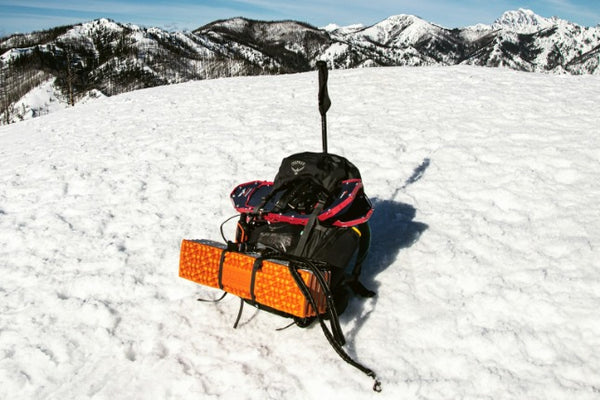
Photo by Jamie Pilgrim on Unsplash
When you're backpacking on a budget, every ounce of weight and every dollar counts. That's where multi-functional gear shines. Look for items that can serve double or even triple duty to maximize the utility of each piece of equipment you carry. For example, investing in a camping stove that also functions as a pot stand means you're getting two essential items in one, saving both space in your pack and money in your wallet. Similarly, a versatile sleeping bag that can be unzipped and used as a blanket during warmer nights adds flexibility to your gear setup without the need for extra purchases. By prioritizing multi-functional gear, you'll streamline your packing list and ensure you're always prepared for whatever the trail throws your way.
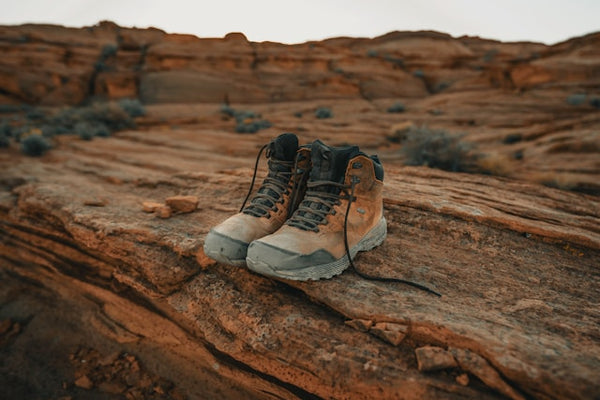
Photo by Clay Banks on Unsplash
One person's lightly used gear can be another person's treasure, and shopping second-hand is a fantastic way to score high-quality outdoor equipment at a fraction of the cost of buying new. Websites like eBay, Craigslist, and outdoor gear forums are goldmines for budget-conscious backpackers on the hunt for deals. Whether you need a sturdy tent, a reliable backpack, or a trusty pair of hiking boots, chances are you'll find exactly what you're looking for at a significantly reduced price. Just be sure to thoroughly inspect any second-hand gear before purchasing it to ensure it's in good condition and meets your needs. With a bit of patience and some savvy searching, you'll be amazed at the quality gear you can find without breaking the bank.
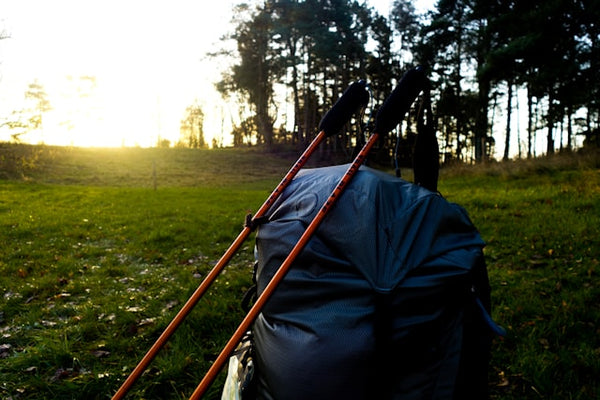
Photo by Bjarke Rosenbeck on Unsplash
For occasional backpackers or those trying out a new activity, renting gear can be a cost-effective alternative to purchasing expensive equipment outright. Many outdoor retailers and specialty shops offer rental services for items like tents, sleeping bags, backpacks, and even technical clothing. Renting allows you to access top-of-the-line gear without the hefty upfront investment, making it ideal for one-time adventures or trips where you need specialized equipment. Additionally, renting gear can be a great way to test out different brands and models before committing to a purchase, ensuring you make informed decisions about which gear best suits your needs and preferences. Before heading out on your next backpacking trip, consider the rental options available in your area and take advantage of the convenience and affordability they provide.
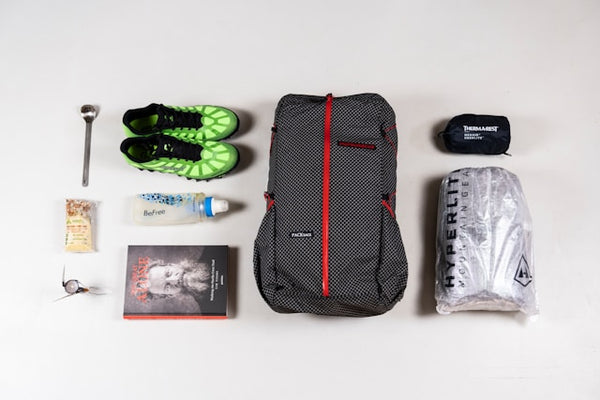
Photo by Hendrik Morkel on Unsplash
While it may seem counterintuitive when you're trying to stick to a budget, investing in high-quality essentials can actually save you money in the long run. Quality gear tends to be more durable and reliable, meaning it's less likely to fail you when you're out on the trail. By investing in a sturdy backpack, a durable tent, or a reliable pair of hiking boots, you're not only ensuring a safer and more comfortable outdoor experience but also reducing the likelihood of needing to replace worn-out or malfunctioning gear down the line. While the initial cost of quality gear may be higher, its longevity and performance pay dividends over time, making it a smart investment for budget-conscious backpackers looking to get the most bang for their buck.
Get creative and tap into your inner handyman or craftsperson by making your own outdoor gear. DIY projects offer a cost-effective way to acquire essential backpacking equipment while also adding a personal touch to your gear setup. From homemade alcohol stoves to DIY dehydrated meals, the possibilities are endless. Not only can DIY gear be tailored to your specific needs and preferences, but it also allows you to customize your equipment at a fraction of the cost of buying premade items. Plus, the satisfaction of using gear you've crafted with your own hands adds an extra layer of enjoyment to your outdoor adventures. With a bit of research and a willingness to experiment, you'll be amazed at what you can create on a budget.
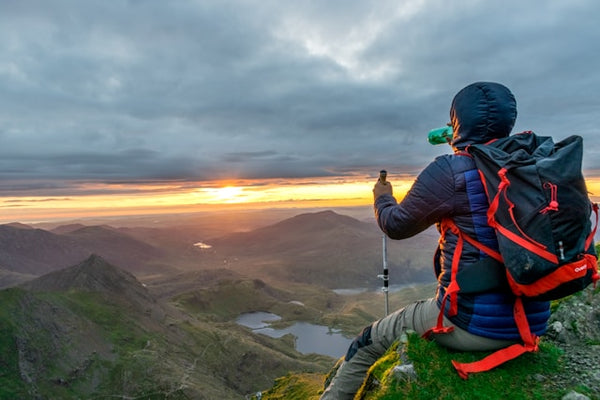
When it comes to purchasing budget backpacking gear, knowledge is power. Take the time to research and compare prices from different retailers to ensure you're getting the best possible deal on the gear you need. While it may require a bit of legwork, the savings can be significant, particularly when it comes to big-ticket items like tents, sleeping bags, and backpacks. Don't forget to factor in additional costs such as shipping and taxes, as these can impact the overall price of your purchase. Keep an eye out for sales, promotions, and clearance events, and consider setting up price alerts or using price comparison websites to stay informed about the best deals. By being proactive and strategic in your purchasing decisions, you can stretch your budget further and make the most of your outdoor gear investments.

Photo by Claudio Schwarz on Unsplash
Keeping an eye out for sales, clearance events, and discount codes from outdoor retailers can lead to substantial savings on your backpacking gear. Many retailers offer seasonal sales or holiday promotions where you can snag quality gear at discounted prices. Additionally, signing up for newsletters or following your favorite brands on social media can grant you access to exclusive deals and early notifications about upcoming sales. Don't forget to check out outlet stores or online marketplaces for discounted or last-season items, which can often be just as functional and reliable as their full-priced counterparts. By being vigilant and proactive in your search for discounts, you can outfit yourself for your backpacking adventures without breaking the bank.
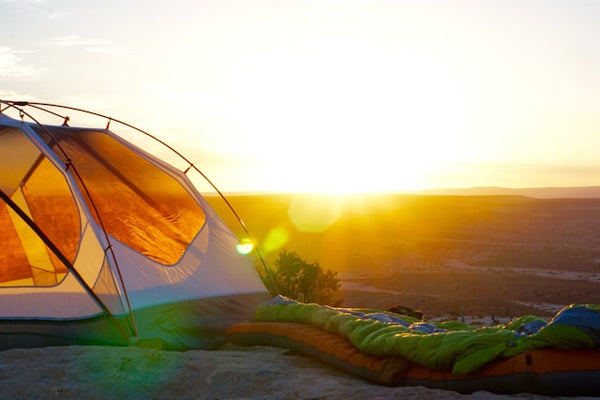
Photo by Jack Sloop on Unsplash
Lightweight gear not only reduces the physical strain of carrying a heavy pack but can also save you money in the long run. While ultralight equipment may come with a higher upfront cost, the reduced wear and tear on your body and gear can lead to long-term savings. Lighter gear is often constructed from high-quality materials that are both durable and efficient, meaning you'll spend less on repairs and replacements over time. Additionally, lighter gear typically requires less fuel and resources to manufacture and transport, making it a more eco-friendly choice in the long term. By prioritizing lightweight options when selecting your backpacking gear, you'll not only lighten your load but also lighten the burden on your wallet.
If you're just starting out with backpacking or trying out a new activity, consider borrowing gear from friends or family members who have experience in the outdoors. Borrowing allows you to test out different types of gear without committing to a purchase, giving you the opportunity to determine what works best for your needs and preferences. Additionally, borrowing gear can be a cost-effective way to access high-quality equipment without the upfront expense. Be sure to express gratitude for the opportunity to borrow and take care of the borrowed gear as if it were your own. This not only maintains the trust between you and the lender but also ensures that the gear remains in good condition for future adventures.
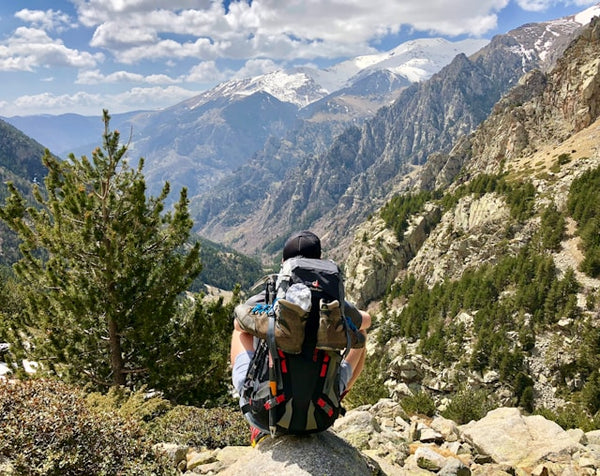
Photo by Marc Rafanell López on Unsplash
Proper maintenance and care are essential for prolonging the life of your outdoor gear and maximizing your investment. After each trip, take the time to clean and store your equipment properly to prevent damage and deterioration. This includes drying out tents and sleeping bags, wiping down stoves and cookware, and inspecting gear for any signs of wear or damage. Address any repairs or maintenance issues promptly to prevent minor problems from escalating into major ones. Investing in gear-specific cleaning products and storage solutions can help extend the lifespan of your equipment and save you money on replacements in the long run. By taking care of your gear and treating it with respect, you'll ensure that it continues to serve you well on many backpacking adventures to come.
Related: How to extend the life of your outdoor gear?
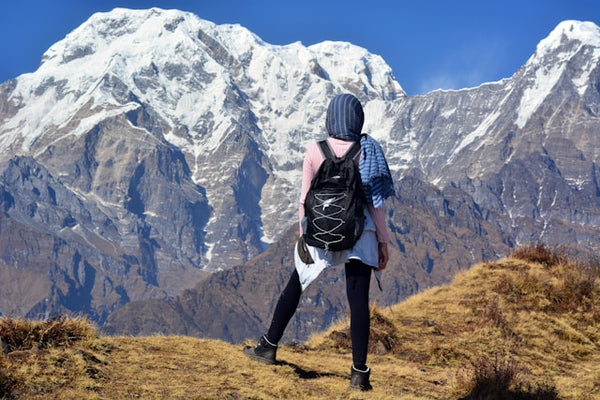
Photo by Laurentiu Morariu on Unsplash
When backpacking on a budget, adopting a minimalist mindset can be your greatest ally. Instead of succumbing to the allure of flashy, high-priced gear, focus on the essentials that truly enhance your outdoor experience. This means carefully curating your gear list to include only items that serve a practical purpose and prioritizing functionality over unnecessary bells and whistles. By embracing minimalism, you not only save money by avoiding frivolous purchases but also lighten your load, allowing for greater mobility and agility on the trail.
Furthermore, minimalism encourages a deeper connection with nature by shifting the focus away from material possessions and towards the beauty of the natural world. When you strip away the excess, you're left with a heightened sense of appreciation for the simple pleasures of backpacking: the sound of birdsong, the scent of pine trees, the feeling of dirt beneath your boots. Backpacking on a budget isn't just about saving money; it's about embracing a simpler, more mindful way of experiencing the great outdoors. By practicing minimalism, you can maximize your enjoyment of the journey while minimizing the impact on your wallet.
By following these tips, you can gear up for your next backpacking adventure without blowing your budget. Remember, the key is to prioritize essentials, shop smart, and make the most of what you have. With a little creativity and resourcefulness, you can enjoy the great outdoors without breaking the bank.
Happy trails!
Hungry for more?
{"one"=>"Select 2 or 3 items to compare", "other"=>"{{ count }} of 3 items selected"}
Leave a comment